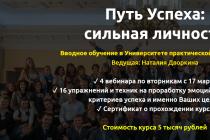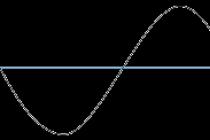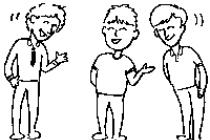1. Childhood
Nikolai Alekseevich Nekrasov was born on December 28, 1821 in the quiet town of the Podolsk province of Nemirovo, where that year the regiment in which his father, Aleksey Sergeevich Nekrasov, came from a family of small local nobles, was temporarily located.
Childhood years were spent in the village of Greshneve, in the family estate of his father, a man of a despotic character who oppressed not only the serfs, but also his family, as the future poet witnessed. Perhaps that is why in the works of Nekrasov one can discern notes of pity for his own mother. The poet's mother, an educated woman, was his first teacher, she instilled in him a love for literature, for the Russian language.
2. Early life
In 1832 - 1837 Nekrasov studied at the Yaroslavl gymnasium. Then he began to write poetry.
At the age of 17 he moved to St. Petersburg, but, refusing to devote himself to a military career, as his father insisted, he was deprived of material support. In 1838, against the will of his father, the future poet tries to enter the university. Unable to pass the entrance exams, he decided to be an auditor and for two years attended lectures at the Faculty of Philology. The disasters that befell Nekrasov were subsequently reflected in his poems and the unfinished novel "The Life and Adventures of Tikhon Trostnikov."
In order not to starve to death, he began to write poetry commissioned by booksellers. At this time he met V. Belinsky. Soon, Nekrasov's affairs "went uphill", he gives lessons, writes short articles for local newspapers, which even allows him to save savings).
3. Literary and journalistic activities
Nikolai Alekseevich's affairs went so well that in 1847 Nekrasov and Panaev acquired the Sovremennik magazine, founded by Alexander Pushkin. The magazine's influence grew every year, until in 1862 the government suspended its publication, and then completely banned the magazine. This year, Nekrasov acquired the Karabikha estate, not far from Yaroslavl, where he came every summer, spending time hunting and chatting with friends from the people.
After the closing of the Sovremennik magazine, Nekrasov acquired the right to publish Otechestvennye zapiski, with which the last ten years of his life were associated. During these years he worked on the poem "Who Lives Well in Russia" (1866 - 76), wrote poems about the Decembrists and their wives ("Grandfather", 1870; "Russian Women", 1871 - 72). In addition, he created a series of satirical works, the culmination of which was the poem "Contemporaries" (1875).
4. Illness
But the euphoria from a good life did not last long, for already in 1850 the writer fell seriously ill (doctors even predicted his imminent death), but a trip to Italy significantly improved Nekrasov's health. In 1875, Nekrasov was diagnosed with intestinal cancer, after which the writer's life turned into a slow departure to another world. It was in the period before his death that Nekrasov, having received support from loved ones, took up creativity with renewed vigor. Nikolai Alekseevich died in December 1877. The funeral of this extraordinary, but undoubtedly great personality in Russian literature was organized by numerous fans and took place at the Novodevichy cemetery.
ABSTRACT ON LITERATURE
ON THE TOPIC:
“LIFE AND CREATIVITY OF N.А. NEKRASOVA "
There is no such person in Russian literature, in all literature, before whom with love and reverence they would bow lower than before the memory of Nekrasov
A.V. Lunacharsky
1. Childhood years. Gymnasium (1821-1838)
Nikolai Alekseevich Nekrasov entered the history of Russian literature as a great poet, whose work is rooted in deep layers folk life, as a poet-citizen, who devoted all his life, all his enormous talent to serving the people. With good reason, the poet at the end of his life could say: "I dedicated my lyre to my people."
Nikolai Alekseevich Nekrasov was born on November 28 (December 10), 1821 in the town of Nemirovo, Bratslav district, Podolsk province in Ukraine, where the regiment in which his father served was at that time stationed.
In 1824, the Nekrasov family moved to Greshnevo, where the future poet spent his childhood. Childhood years left a deep imprint on the mind of Nekrasov. Here he first encountered many dark sides of the life of the people, here he witnessed the cruel manifestations of serfdom: poverty, violence, arbitrariness, humiliation of human dignity.
The poet's father, Aleksey Sergeevich Nekrasov (1788-1862), belonged to a rather old, but impoverished family. In his youth, he served in the army, and after retirement took up farming. A harsh and wayward man, he cruelly exploited his peasants. 3a the slightest offense of serfs was punished with rods. The poet's father did not disdain even fist violence.
That is why, many years later, the poet wrote with such bitterness about his childhood:
No! in my youth, rebellious and harsh,
There is no pleasant memory for the soul;
But all that, having entangled my life from the first years,
An irresistible curse fell upon me, -
Everything began here, in the land of my dear! ..
("Homeland")
It is difficult to say what would have happened to young Nekrasov, whose upbringing took place in such an unattractive environment.
But Nekrasov was saved by the fact that his mother was next to him - Elena Andreevna (nee Zakrevskaya). The poet more than once said that she saved his soul from corruption, that it was his mother who instilled in him the idea of living in the name of "the ideals of goodness and beauty."
A woman surprisingly gentle, kind, well-educated, Elena Andreevna was the complete opposite of her rude and limited husband. Marriage with him was a real tragedy for her, and she gave all her love and tenderness to the children. Elena Andreevna was seriously involved in their upbringing, read a lot to them, played the piano and sang for them.
Little Nekrasov was passionately attached to his mother, he spent long hours with her, devoted his innermost dreams to her. In his poems, he often recalled the "sad look", and the "quiet step" of the mother, and the "pale hand" that caressed him.
Until the end of his days, Nekrasov remembered his mother with deep emotion, adoration and love. He wrote about her in the poems "Homeland", "The Knight for an Hour", "Bayushki-Bayu", "Hermit", in the poems "The Unfortunate" and "Mother".
The poet saw a lot of grief and suffering as a child. But this did not harden his soul. And to a large extent this was facilitated by the fact that he grew up in close proximity to the common people. His father forbade him to meet the children of the serfs. However, as soon as his father was absent somewhere, the boy secretly ran away to the village, where he had many friends.
Communication with peasant children had the most beneficial effect on Nekrasov, and he retained warm feelings for childhood friends throughout his life. And, already, as an adult, arriving in Greshnevo, he could with good reason say:
All familiar people,
Every man is a friend.
In 1832, Nekrasov, together with his brother Andrei, entered the Yaroslavl gymnasium. Nekrasov studied unevenly. And this is not surprising. He, like many other students, was deeply antipathetic to the education system in the gymnasium, and the teachers did not arouse either self-respect or interest in the disciplines they taught. Comrades loved Nekrasov for his lively and sociable character, for his erudition and ability to tell.
Nekrasov really read a lot, albeit quite randomly. He borrowed books from the gymnasium library, sometimes he turned to the teachers of the gymnasium.
Nekrasov's interest in creativity aroused very early. As he himself said, “I began to write poetry at the age of seven. But before entering the gymnasium, he wrote poetry only from time to time, And of course these were weak, naive attempts to rhyme a few lines. Now he began to take poetry more seriously. First, Nekrasov tried to write satire on his comrades, and then lyric poems. “And most importantly,” the poet recalled, “whatever I read, I imitate that”.
In the summer of 1837, Nekrasov left the gymnasium.
For a whole year, Nekrasov lived at home in Greshnevo. And all this time he was persistently pursued by the thought: what to do next. The father wanted his son to enter the Noble Regiment (this was the name of the military educational institution for the children of the nobility) and receive a military education. But the future poet was not at all attracted by a military career. Nekrasov dreamed of studying at the university, and then doing literary work.
2. Petersburg. The beginning of literary activity
Nekrasov was not yet seventeen years old when, filled with the most optimistic hopes, he arrived in St. Petersburg.
It was not possible to enter the university: the knowledge gained in the gymnasium turned out to be too meager. I had to think about their daily bread. There were acquaintances who tried to help the young poet and put his poems in print. Several of Nekrasov's works were published in the journals Son of the Fatherland, Literary Supplements to the Russian Invalid, and later in the Library for Reading. But aspiring authors were paid little there. A life full of hardships began. Nekrasov wandered through the Petersburg slums, lived in basements and in attics, earned money by writing papers, drawing up all kinds of petitions and petitions for poor people.
But the hardships of life did not break Nekrasov, did not shake his passionate desire to learn. He continued to dream of going to university and prepared hard for his exams. However, despite the help of friends, he did not succeed in fulfilling his dream. True, Nekrasov was received by an auditor and was even exempted from paying for listening to lectures.
On the advice of one of his acquaintances, Nekrasov decided to collect his printed and handwritten poems and publish them in a separate book called Dreams and Sounds.
The collection Dream and Sounds came out in early 1840. Nekrasov hid his name under the initials N.N.
The poet himself judged his early work very harshly. “I wrote a lot of rubbish because of bread,” he noted in Autobiographical Records, “especially my stories, even later ones, are very bad - just stupid ...”.
3. Commonwealth with Belinsky. The beginning of Sovremennik
In 1842, an event occurred that was a turning point in the life of Nekrasov: he introduced and soon became friends with Belinsky. By that time, the great critic was at the center of the literary movement of the era and his worldview was already acquiring a revolutionary-democratic character. Belinsky took the most ardent part in the fate of the young poet. He guessed an outstanding person in Nekrasov and in every possible way contributed to the development of his talent.
Nekrasov had a lot in common with the great critic.
Later, Nekrasov spoke about Belinsky's beneficial influence on the formation of his views:
You taught us to think humanely,
I was hardly the first to remember the people,
You were almost the first to speak
About equality, brotherhood, freedom ...
("Bear Hunt")
According to FM Dostoevsky, Nekrasov "was in awe of Belinsky and, it seems, loved him the most in his life."
Belinsky closely followed Nekrasov's work, helped with advice, tried to attract him to more active cooperation in the journal Otechestvennye zapiski, where he headed the critical department.
From now on, every poem by Nekrasov was perceived in Belinsky's circle as an event.
One by one, Nekrasov's poems about peasant life appear: about the fate of a "wahlak peasant" who dared to fall in love with a noble's daughter ("Ogorodnik"), about a poor man for whom only one road has been prepared - "to the tavern" ("The Drunkard"), about a rural beauty awaiting the bitter lot of a Russian woman ("Troika").
In the mid-1840s, Nekrasov began his active work as a publisher. In 1844-1845, Nekrasov published two volumes of the anthology "Physiology of Petersburg", and in 1846 - "Petersburg collection".
The almanacs "Physiology of St. Petersburg" and "Petersburg Collection" were warmly received by the public and highly appreciated by leading critics in the person of Belinsky.
Success inspired Nekrasov, and he conceived a new literary enterprise - to publish his own magazine. With the help of his friends, the poet, together with the writer I. I. Panaev, at the end of 1846 rented the Sovremennik magazine. Nekrasov made a complete reorganization of the magazine. VG Belinsky, AI Herzen, IS Turgenev, IA Goncharov and other leading writers and poets of that time became the leading collaborators of Sovremennik.
The first issue of the updated Sovremennik was published in January 1847.
4. Creativity Nekrasov in the 1850s
Back in the early 1850s, Nekrasov fell seriously ill. The disease progressed every year: years of poverty, hunger, hard, exhausting work affected. The poet was convinced that his days were numbered, and decided that it was time for him to take stock of his creative path. To this end, he undertook the publication of a collection of poems, for which he selected best works written by him in the period from 1845 to 1856 and most fully reflecting the characteristic features of his poetic muse.
The collection "Poems of N. Nekrasov" was published in the spring of 1856. His appearance became an important social and literary event.
The collection was opened by Nekrasov's program poem "The Poet and the Citizen", where the idea was clearly expressed that poetry is an important public affair, that a poet has no right to evade the struggle for progressive ideals, that it is his duty to be a citizen of his homeland, fearlessly going into battle "For the honor of the motherland, for convictions, for love":
Be a citizen! serving art,
Live for the good of your neighbor
Submitting your genius to feeling
All-embracing love ...
The composition of the collection "Poems of N. Nekrasov" was deeply thought out by the poet. At the beginning of it, Nekrasov placed works depicting the life of representatives of the people. These are such poems as "On the Road", "Vlas", "Ogorodnik", "Forgotten Village", etc.
The second section of the collection was composed of works that depict those who exploited and enslaved the people: landowners, officials, bourgeois capitalists. These were, as a rule, satirical poems: "Hound hunting", "Lullaby", "Philanthropist", "Modern ode", "Moral man".
In the third section, Nekrasov included the poem "Sasha", in which he was one of the first in Russian literature to raise the question that in the conditions of a powerful social upsurge in the country, a new hero is needed, that the time when public life belonged to representatives of the noble intelligentsia, it passed, as they turned out to be unstable in their convictions and could not translate word into deed. The poem depicts the charming image of the girl Sasha, striving to find her place in life and be useful to people:
All her poor friends are friends:
Feeds, caresses and treats ailments.
The collection "Poems of N. Nekrasov" was a huge success. The entire edition was sold out in a few days. This has not happened in Russian literature, according to Turgenev, since the time of Pushkin.)
The main, fundamental theme of Nekrasov's work has always been the theme of peasant life. No wonder the poet was called a singer of the people, a plowman, a peasant democrat. Throughout his career, he wrote about the hard, joyless life of village workers. The poet dedicated many of his works to the bitter share of the rural working people: "Uncompressed Strip", "Forgotten Village" and others.
etc.................
Biography of Nikolai Alekseevich Nekrasov
The talented Russian writer Nikolai Alekseevich Nekrasov was born on November 28, 1821 in the small town of Nemirovo, Podolsk province, into the large family of an impoverished nobleman Aleksey Sergeevich Nekrasov. My father was a lieutenant of the Jaeger regiment in Nemyriv. Mother - Alexandra Andreevna Zakrevskaya, who fell in love with him against the will of her wealthy parents. The marriage took place without their blessing. But contrary to the expectations of Nekrasov's wife, the family life of the spouses was unhappy. The poet's father was distinguished by his despotism towards his wife and thirteen children. He had many addictions that led to the impoverishment of the family and the need to move to the village of Greshneva, his father's family estate, in 1824, where the unhappy childhood of the future prose writer and publicist took place.
At the age of ten, Nikolai Alekseevich entered the Yaroslavl gymnasium. During this period, he was just beginning to write his first works. However, due to low academic performance, conflicts with the leadership of the gymnasium, who did not like the poet's satirical poems, and also because of the father's desire to give his son to military school the boy studied for only five years.
At the behest of his father, in 1838 Nekrasov came to St. Petersburg to join the local regiment. But under the influence of his gymnasium friend Glushitsky, he goes against the will of his father and applies for admission to St. Petersburg University. However, due to the constant search for sources of income, Nekrasov does not pass the entrance exams successfully. As a result, he began to attend classes at the Faculty of Philology, where he studied from 1839 to 1841.
All this time, Nekrasov was in search of at least some kind of earnings, since his father stopped giving him money. The aspiring poet undertook to write low-paid tales in verse, articles for various publications.
In the early 40s, Nekrasov managed to write small notes in the theater magazine "Pantheon ...", became an employee of the magazine "Otechestvennye Zapiski".
In 1843, Nekrasov became close to Belinsky, who highly appreciated his work and contributed to the disclosure of his talent.
In 1845-1846, Nekrasov published two almanacs "Petersburg Collection" and "Physiology of Petersburg".
In 1847, thanks to the gift of writing excellent works, Nekrasov managed to become the editor and publisher of the Sovremennik magazine. Being a talented organizer, he managed to attract such writers as Herzen, Turgenev, Belinsky, Goncharov, and others to the magazine.
At this time, Nekrasov's work is saturated with compassion for the common people, most of his works are devoted to the hard working life of people: "Peasant Children", "Railway", "Frost, Red Nose", "Poet and Citizen", "Peddlers", "Reflections at front entrance ", etc. Analyzing the work of the writer, one can come to the conclusion that Nekrasov in his poems touched upon acute social problems. Also, the poet gave a significant place in his works to the role of a woman, her hard part.
After the closure of Sovremennik in 1866, Nekrasov managed to rent Otechestvennye Zapiski from Kraevsky, occupying no less a higher level than Sovremennik.
The poet died on January 8, 1878 in St. Petersburg, without overcoming a long-term serious illness. The manifestation of the great loss of such a talented person was the manifesto of several thousand people who came to say goodbye to Nekrasov.
In addition to the biography of Nekrasov, also check out other materials:
- “It's stuffy! Without happiness and will ... ", analysis of the poem by Nekrasov
- "Farewell", analysis of the poem by Nekrasov
- "The heart is breaking with anguish", analysis of the poem by Nekrasov
The name of one of the brightest writers of the 19th century is familiar to everyone. Such works as "Who Lives Well in Russia" and "Grandfather Mazai and the Hares" are part of the school curriculum of every modern student. Biography of Nekrasov includes information known to all admirers of his work.
For example, he is considered not only a poet, but also a publicist. This is a revolutionary democrat, head and editor of the journals Otechestvennye zapiski and Sovremennik. Lover of card games and hunting. Biography of Nekrasov knows many others interesting facts... Our article is devoted to them.
Who is he?
The hometown of the future poet was the Ukrainian Nemyriv, where he was born in 1821. Nikolai Alekseevich Nekrasov was born into the family of a military man and a well-bred daughter of a wealthy tenant. According to the poet's recollections, the parents' marriage was not happy. The mother always appeared to be a sufferer, experiencing her female share. The writer dedicated many works to her. Perhaps her image is the only positive hero of Nekrasov's world, which he will carry through all his work. The father will also become the prototype of individual heroes, but more despotic.

Growing up and becoming
After his father retired, Aleksey Sergeevich became a police chief - this was the name of the head of police earlier. Little Nikolai often went out with him on business. During this time, he saw many deaths and poverty. Subsequently, the difficulties of the peasant people were reflected in his poems by the writer Nekrasov.
In the Yaroslavl gymnasium, he will study until the 5th grade. The first poems will be written in a specially wound notebook. Most of the poet's early works are full of sad images and impressions. When he turns 17, his father, who dreamed of a military career, will send his son to a noble regiment.
The first independent decision of Nekrasov was the desire to enter the St. Petersburg University. This was facilitated by the acquaintance with students who became good friends. He failed the exam, enrolling in the Faculty of Philology as an auditor. For two years, Nekrasov has been attending lectures and does not abandon his search for work - the angry Nekrasov Sr. refused to help him financially. During this period, the poet experiences terrible suffering, left homeless, and even hungry. In a shelter for 15 kopecks, he wrote a petition for someone. This was the first episode in his life when his future profession brought money.
Finding your direction
The hardships were not in vain for the writer. He realized for himself what the hardships of life are. Nekrasov's life soon improved. Literaturnaya Gazeta published his works, and he himself worked diligently in all directions: he wrote vaudeville, alphabets, poetry and prose.
The first collection of poems "Dreams and Sounds" Nekrasov released on his own savings. Criticism about the book was divided equally - some considered it commendable, others responded unflattering. Like Gogol, the annoyed Nekrasov bought and then destroyed almost all of its copies. In our time, "Dreams and Sounds" acquired the status of a literary rarity, which is extremely difficult to find.

Failure is followed by confession
The fact that the poems were not sold out made the writer think, study the reason for his defeat. Nikolai Alekseevich Nekrasov discovered a new genre for himself - prose. It came easier. In it, the author reflects life experience, impressions of the city, where he seeks to show all its classes. These are peddlers, officials, deceived women, usurers and the poor. Without stopping at what has been achieved, Nekrasov introduces a humorous subtext, which became the basis for several subsequent works.
The creative upsurge of the writer falls on the release of his own almanacs. Nekrasov's life does not seem to him without publishing, which he associates with the lease of Sovremennik in 1847. Many talented poets joined the magazine, including Belinsky, who was always the first to get acquainted with the new works of Nekrasov and gave his feedback. Those for whom Sovremennik became a launching pad included: Turgenev, Ogarev, Ostrovsky, Chernyshevsky, Dobrolyubov, Saltykov-Shchedrin and others. Each contributed something of his own, making Sovremennik the best literary publication. Nekrasov himself is published in it, remaining its leader.

Satire is a way to laugh at society
The creative path of the writer is invariably associated not only with the search for oneself, but also with other directions in which one can work. Biography of Nekrasov cannot ignore the love of satire, which he discovered in the later years of his work. A number of satirical works have been published. In this genre, the writer exposes social foundations, subtly describes topical topics, uses the methods of soulful intonations and vaudeville components. In short, he deftly uses the richness of the Russian language, using grotesque, sarcasm, farce and irony.
At this time, “Who lives well in Russia” was born. The poem of a peasant theme touches on the main idea - feeling freedom, does the Russian people experience happiness? In 1875, the poet falls ill. He receives telegrams and letters from readers, which gives new inspiration for the latest works. A huge number of people came to the funeral at the Novodevichy cemetery. Among them was Dostoevsky, who called Nekrasov the third writer after Pushkin and Lermontov. Dates of Nekrasov's life - November 28, 1821 (born) - December 27, 1877 (died).
Personal happiness

What can be said about a person who felt and saw with his own eyes all the misfortunes of the peasants and the working class, to whom he devoted so much works? Was he happy himself?
Of course, the biography of Nekrasov gives information that the poet loved Avdotya Panaeva, the wife of the writer Ivan Panaev. Their relationship has remained in history as one of the strangest. And although Ivan Panaev was known as a reveler, his wife remained a decent woman. At first, she rejected both Nekrasov and Dostoevsky, who was also in love with her. And soon she confessed to the reciprocal feelings for the first. Nekrasov moved to her house, forming a love triangle Nekrasov-Panaeva-Panaev. So they lived for 16 years. The birth of Nekrasov's son and his early death are associated with the death of Panaev. The poet falls into depression, which served as a breakdown on the initiative of Avdotya.
The village girl Fekla Viktorova became the new darling of the writer. The age difference was 25 years. He named an uneducated woman Zinaida. He takes her to theaters and tries to educate her in every possible way.
Place in literature
Every writer leaves his mark. Nikolai Alekseevich Nekrasov was one of the brightest authors of the 19th century, who left a legacy of many works endowed with depth and philosophy. Libraries, museums and other cultural institutions bear his name. The central streets of many Russian cities are named in honor of the writer. Monuments and postage stamps are dedicated to him. According to many writers, his work was not fully appreciated during his lifetime. However, this loss is being made up in our time.
The creativity of N.A. Nekrasov is relevant now, as in the 19th century. The civic position of young people should be active, this is what the great Russian poet called for. The origins of N. Nekrasov's creativity helps to understand the study of his biography.
Download:
Preview:
Nikolay Alekseevich Nekrasov
(1821-1878)
Sketch of life and work
Citizenship of the lyrics, heightened truthfulness and drama in the depiction of the life of the people
Lesson objectives:
To expand the knowledge of students about the life and work of Nekrasov (living conditions - the formation of his personality and talent);
Help students identify the main themes of Nekrasov's lyrics;
Improve the technique of expressive reading;
To educate citizenship, patriotism.
After studying the topic, students should
Know:
Biography of N. Nekrasov, conditions for the formation of his personality and talent:
Nekrasov's activities as editor of the Sovremennik and Otechestvennye zapiski magazines:
The main themes of N. Nekrasov's lyrics.
Be able to:
Analyze lyric works;
Literary theory: nationality
Equipment:
Portrait of N. Nekrasov;
I. Fogelson "Literature teaches", M., Pr., 1990, p. 116;
N. Nekrasov "Poems and Poems", M., 1984
Occupation type: combined
Working methods: analysis of a lyric work
UPU: poetry of F. Tyutchev and A. Fet
Poetry by A. Pushkin and M. Lermontov
Lesson structure
- Organizational moment
- Motivation topic
Russian lyrics first half of the XIX centuries, she described with pain and sympathy, indignation and protesting, the suffering of the people, expressed love and attention to the life of the people. Remember "The Village" by A. Pushkin, "Homeland" by Lermontov. And that was the greatest achievement of our literature. However, the author's "I" in such poems expressed these feelings as if "from the outside" - from the position of the spiritual world of an advanced person, but from a different sociological environment - a nobleman.
Lyrics of Nekrasov took the next step. The poet clearly merged with the people, with their ideas, the ideal that in the lyrics the author's “I” became the man himself from the people - the urban poor, the soldier's recruit, the serf, the peasant woman. These are their voices, their feelings and moods we feel in Nekrasov, they themselves speak about their pain, suffering, dreams, love, hatred.
My poetry! Living witnesses
For the world of shed tears!
You were born in fatal moments
Soul thunderstorms
And beat against human hearts,
Like waves on a cliff.
(1858)
The creativity of N.A. Nekrasova occupies a special place in the history of literature. On the one hand, N. Nekrasov is associated with the traditions of A. Pushkin and M. Lermontov, and on the other hand, he is one of the initiators of a new trend.
What is the difference between the lyrics of Nekrasov from the lyrics of Tyutchev and Fet, from the representatives of “pure skill? From the lyrics of Zhukovsky, Delvig?
Let's compare excerpts from the poems of romantic poets with the corresponding t lines from the lyrics of Nekrasov. What's new in his poetry? (Fogelson, p. 122)
we find in the lyrics of Nekrasov the novelty of the problematic, composition, genres, the originality of the author's vision of the world, and civic consciousness.
How was Nekrasov formed as a poet and personality? What do you know about his childhood?
- Presentation of new material. The creativity of N.A. Nekrasov.
I AM lyre dedicated to his people
I. Childhood, Yaroslavl gymnasium. The first years of his life in St. Petersburg (1821-1840). After the son's refusal to enroll in military service, his father deprived him of his inheritance and content. "Petersburg ordeals" - poverty, failure in university exams, harassment in criticism of Sat. Dreams and Sounds (imitative).
II.The rapprochement with V. Belinsky is a turning point in the creative biography of Nekrasov.
(Art., "Homeland" (1846)
Sh.Nekrasov - publisher and editor of the Sovremennik magazine (1847-1866) Thematic and genre richness of Nekrasov's work:
- a cycle of lyric poems;
- poems about the urban poor ("On the street", "About the weather ...")
- poems about a woman's share ("Wedding", "Countryside suffering is in full swing ...");
- poems about the plight of the people ("Uncompressed strip", "Arina, the soldier's mother", "Listening to the horrors of war", " Railway", The poems" Peasant Children "," Peddlers "," Frost, Red Nose ");
- civic lyrics (Poet and Citizen);
- the theme of Russia, self-awareness and social purpose of the Russian person ("Sasha", "Turgenevu");
- Nekrasov - publisher and editor of the journal Otechestvennye zapiski (1867-1877)
- Creativity Nekrasov 1867-1877:
- the poem "Who Lives Well in Russia" (1863-1877);
- poems about the Decembrists and their wives (Grandfather, Russian Women);
- a poem about bureaucrats, the bourgeoisie and liberal businessmen ("Contemporaries" is a satire);
- poems imbued with elegiac moods (Three Elegies, Morning, Despondency, Elegy);
- poems expressing the poet's faith in the future of Russia and the people ("The Prophet").
Analysis of lyric works
"Homeland" (1846) - a kind of result of Nekrasov's ideological searches.
The poems are based on the facts of the poet's biography, but these details of the biography develop into the historical patterns of the fate of the people of serf Russia.
For Nekrasov, there is not even an initial joyful Pushkin experience at the sight of a garden, a house.
"Homeland" is written in the form of a lyrical monologue. Nekrasov's innovation lies not only in the novelty of the problematics, but also in the fact that Nekrasov, destroying the genre barriers (includes elements of satire, elegy, lyric landscape), he creates a lyric poem new in form, saturated with social content.
"Poet and Citizen"
(poem "The Poet and the Citizen", video project of the TV channel "Culture")
Issues for discussion:
- What does the citizen urge the poet to do?
- What is the originality of the composition of the poem?
(a clash of two characters, two types of relation to reality. In terms of genre, this is a philosophical dispute in the form of drama.
- What is the genre of poetry?
- Why does Nekrasov choose the form of dialogue? (duality of the author)
- What is the motive of the poem?
Motive - the main mood of the poet, the feeling he experienced while writing a poem
Dialogue in poems could be perceived as a polemic between representatives of "pure art" and revolutionary democratic.
In his poems, Nekrasov expounds his views on the role and purpose of the poet. The content of the poem is a conversation between conventional characters - the Poet and the Citizen. Before us is not a clash of two opponents, but a mutual search for a true answer to the question of the role of the poet and the purpose of poetry in public life. The author expresses the following thought: the role of the artist in the life of society is so significant that it requires from him not only artistic talent, but also civic convictions, an active struggle for these convictions.
The son cannot look calmly
On the mother's grief,
There will be no worthy citizen
To the Fatherland is cold in soul
You may not be a poet
But you must be a citizen.
Elegy (1874)
(Elegy - a poem in which moods, sad thoughts, grief, philosophical reflections are expressed)
What is the situation in Russia; the circumstances of Nekrasov's life during the years of the creation of "Elegy"? (first half of the 70s of the XIX century)
Why did Nekrasov choose the elegy genre?
The poem is dedicated to A.N. Ermakov, a friend of Nekrasov, a communications engineer.
Why is the dedication to Ermakov included in the text? What does this give the reader?
Dedication makes this poem a personal document, lyric work dedicated to two social themes: the position of the people and the role of the singer in society, as well as the vocation of each person, his place in society.
At this time (the time when the poem was written on August 15, 1874), the revolutionary movement in the country fell. The Paris Commune was destroyed. N. Nekrasov is sick a lot, he loses his voice, complains of stomach, then it turns out that he has cancer. The number of friends nearby became less and less. The poet doubts the attitude of young people towards themselves today. The main question is what about the people, what is they like and what will happen to them? There are many reasons for thought.
Therefore, Nekrasov chooses the genre of his poem "Elegy", which is an expression of mostly sad thoughts.
What is personal in this poem?
The poet's "I" exists in three of the four stanzas of the poem:
in the second, Nekrasov thinks about the essence of his poetry, about his conscience;
in the third - about what he saw and heard in life;
in the fourth - about how inspiration comes to him.
What is Nekrasov in this poem?
This is a person who knows how to think (“I’m looking for the answer in the wrong place?)
This is a person who works not for the sake of fame, but for the sake of his conscience.
Where does Nekrasov see the essence of his poetry?
The purpose of poetry is to serve the people.The poet glorifies the union of the muse with the people ("And there is nothing stronger in the world, more beautiful than a union!") And confirms with a personal example:
I dedicated my lyre to my people
How did he react to the reform of 1861? Has it become easier for the peasant?
Is there a description of nature in the verses?
Nature matches the poet's mood: brooding, sad
What is in this poem that is universally significant for all eras? for posterity?
We examined several poems, and in each of them we heard the poet's unique voice, felt the peculiarities of his style.
- What is a writing style?
Style - this is the unity of all means of artistic depiction of life in the writer's work.
The originality of the style depends on his views on life and art, moral and aesthetic ideals, political and artistic beliefs, characteristics of his personality and talent.
Nekrasov has important features:
The depiction of life with its inherent complexity and contradiction;
Striving for truth, comprehension of regular (typical) processes and phenomena of reality;
Criticism of an unfair social order;
Expression of progressive social ideals;
Poeticization of the peasant's world.
(Tutorial page. Writer's style)
The main motives of the lyrics:
Appointment of poet and poetry;
People theme;
The image of a new man, a hero of the time;
The theme of Russia.
IV. Anchoring
What can be said about the childhood and adolescence of the writer?
How was his life in St. Petersburg?
What role did his acquaintance with Belinsky play in his life?
What can you say about Nekrasov the journalist?
How did the Muse of Nekrasov differ from the muse of Pushkin, Lermontov?
What is the purpose of the poet in public life?
What does Nekrasov say about the fate of the Russian people and the Russian peasant woman?
How is the image of the Motherland revealed in Nekrasov's poetry?
Only one thing is important -
Do you love the people, the homeland,
Serve them with heart and soul.
N. Nekrasov
Vi. Homework:
Write an essay "I was called to praise your sufferings, amaze people with patience."
List of used literature:
1. Nekrasov N.A. Collected works. Poetry. Poems.
2. Nekrasov NA .. Who lives well in Russia. Series "Classics for School". M .: "Strekoza-Press", 2005.
3. Korovin V.I. Russian poetry of the nineteenth century. M., 1983.
4.Live pages. N.A. Nekrasov in memoirs, letters, diaries, autobiographical works and documents. M., 1974;
5. Skatov N.N. "ON. Nekrasov. The life of wonderful people. ", M., 1994














